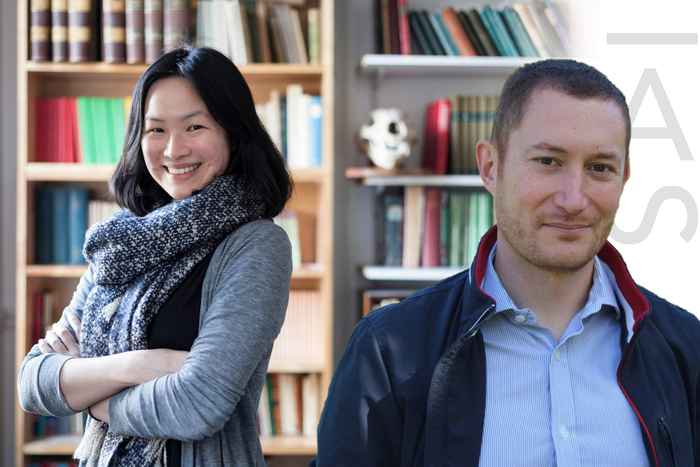Automating Cinema: Technographic Explorations of Artificial Intelligence in Film Culture (on-site)
Kick-off lecture by Pei-Sze Chow and Claudio Celis Bueno
- Date
- 28 March 2023
- Time
- 12:00 -14:00

Automating Cinema: Technographic Explorations of Artificial Intelligence in Film Culture
There is one stark constant in the film business: there is no methodology on which a producer can rely to select the next box office smash hit out of the hundreds of screenplays that land on their desk. For screenwriters and art directors, it is a grueling and effort-laden challenge to generate and craft novel stories and artistic visions that will stick in audiences’ minds long after the film has ended. Yet within the past five years, artificial intelligence (AI) automation tools have been introduced into various parts of the film production process, offering practitioners data-driven means to ‘enhance creativity’ or to make ‘faster and better informed’ decisions about their film projects. Tasks such as greenlighting new projects, scriptwriting, storyboarding, casting, production design, post-production, distribution and marketing can now, to a fairly large extent, be automated in a matter of minutes. In one fell swoop, conventional modes of cinematic production that rely on huge (and expensive) teams of film workers, lengthy timelines, and a great deal of subjective gut-feeling can now be made cheaper, faster, and more accurate.
As various forms of AI-based tools become more embedded within the film industry with promises of creativity-enhancing and efficiency-boosting qualities, we are now at the stage where it becomes crucial to interrogate what this phenomenon means for cinema and the people who produce and consume it. What imaginaries are at play when we speak of ‘data-driven creativity’ or of ‘decision-support tools’ powered by AI? How do film practitioners, in their specific roles within the production milieu, engage with these tools and negotiate their creativity agency vis-à-vis the lure of automation? Finally, how might the increased use of AI-based automation tools in film production impact the stories that are being told and through which we make sense of the world?
In this talk, Pei-Sze Chow and Claudio Celis Bueno will introduce their current research project at the Institute for Advanced Study. First, the speakers will offer an introduction to the emerging AI tools that are being utilized in different segments of the film industry, noting how while production has long relied on technological solutions, the introduction of AI potentially presents a new challenge and opportunity for film workers. Second, the presentation will reflect on what methods (old/new) can be deployed in order to study cultural production in the context of AI. More specifically, this project will be based on a technography (‘ethnography of technology-in-use’) focused on film practitioners and their relation to these technologies. Borrowing from approaches in Media Production Studies and Science and Technology Studies, the project reflects on what are the methodological challenges and possibilities of this emerging phenomenon. Third, and building on the previous two parts, the presentation will argue that in order to approach the issue of creativity in the context of AI a conceptual shift is needed. Following Mihaly Csikszentmihalyi, we argue that rather than focusing on the question of ‘what is creativity’ we should assume the point of view of ‘where is creativity’. This means that instead of thinking about creativity as a purely cognitive faculty or the action of one individual agent (human or computer), we would like to examine how creativity always takes place in the crossroad between three forces: technology, practices, and social arrangements (Lievrouw). This shift allows us to move beyond the less productive question ‘can computers be creative?’ to a more concrete analysis of how these new algorithmic technologies are shifting the relations of forces in which creative practices not also take place but also become valorized.
Programme
| 12:00 | Lunch on arrival |
| 12:30 | Welcome & introduction by Huub Dijstelbloem |
| 12:40 | Lecture by Pei-Sze Chow and Claudio Celis Bueno |
| 13:40 | Q&A |
Location
Institute for Advanced Study
Oude Turfmarkt 147
1012GC Amsterdam